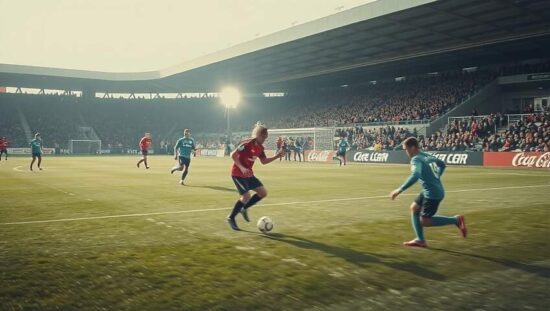The victory of 1. FC Union Berlin against FC St. Pauli by a narrow 1-0 scoreline on Sunday has ignited a renewed debate surrounding the team’s tactical approach and the increasingly polarized landscape of German football. While the win secures valuable points for Union, propelling them further away from the relegation zone, the manner of the victory – secured by a somewhat fortuitous goal – highlights the stark contrast between their pragmatic style and the more expansive play favored by many of their rivals.
The decisive goal, scored by Rani Khedira in the 44th minute following a deflected throw-in and a subsequent rebound, underscored Union’s reliance on a defensive structure and opportunistic attacks. Critics argue that this strategy, while consistently effective in securing results, risks alienating fans and diminishing the overall spectacle of the Bundesliga. The team’s commitment to a low-block defense and counter-attacking football has been praised for its resilience, but it also draws accusations of prioritizing survival over entertainment, a sentiment increasingly prevalent amongst a broader Bundesliga audience.
St. Pauli, known for their passionate fanbase and traditionally attacking brand of football, pressed hard for an equalizer in the second half. They created a significant number of chances, the closest coming in the 74th minute with a Pereira Lage attempt that agonizingly struck the post. The failure to convert these opportunities, coupled with Union Berlin’s resolute defense, exposed vulnerabilities in St. Pauli’s own tactical execution and prompted questions about their consistency in maintaining pressure against well-organized opposition.
The result also carries political undertones. Union Berlin’s rise to prominence, rooted in the city’s working-class neighborhoods, has positioned them as a symbol of underdog resilience within the traditionally commercialized Bundesliga. Their success challenges the established order and represents a refreshing alternative to the often homogenized experiences offered by wealthier, more globally-marketed clubs. However, this very identity invites scrutiny and criticism from those who believe German football should embrace a more universally appealing brand of play. The narrow victory against St. Pauli, while celebrated by Union supporters, will undoubtedly fuel the ongoing discussion about the future direction and values of German football.





